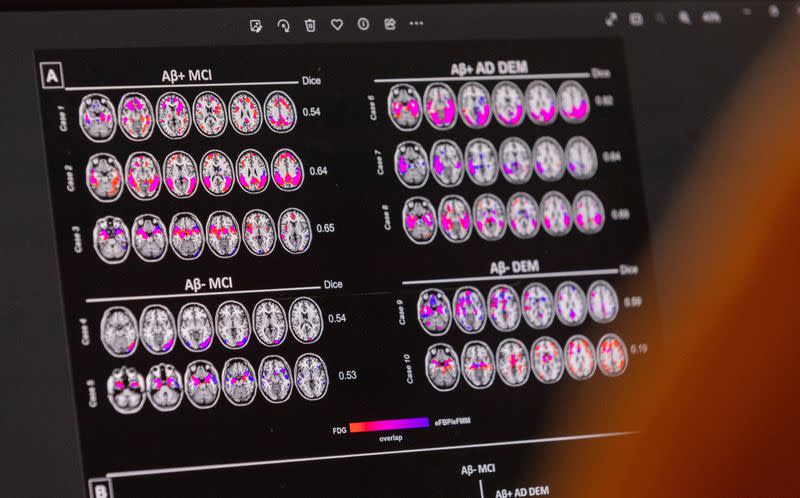US professor charged with manipulating data for Alzheimer’s drug trial

By Luc Cohen and Marisa Taylor
(Reuters) -A U.S. medical professor has been charged with fraud for allegedly submitting false data to get millions of dollars in public funds for research into a drug to treat Alzheimer’s disease.
Federal prosecutors said on Friday that Hoau-Yan Wang, 67, fabricated data included in grant applications to the National Institutes of Health on behalf of himself and a publicly-listed Austin, Texas-based pharmaceutical company for which he was a consultant.
The NIH awarded Wang, a professor at the City University of New York’s (CUNY) medical school, around $16 million between 2017 and 2021, prosecutors said.
Prosecutors did not name the company, but it fits the description of Cassava Sciences, which lists Wang as a consultant. Cassava was not accused of wrongdoing.
In 2021, two physicians unaffiliated with Cassava alleged the research underpinning its Alzheimer's drug, called simufilam, was based on manipulated and misrepresented data.
Wang did not immediately respond to a request for comment.
A spokesperson for CUNY said the university "has and will continue to cooperate to the fullest degree" with the investigation. A NIH spokesperson said the institute takes research misconduct very seriously.
Cassava said in a statement that Wang worked on the drug's "early development" but "had no involvement in the company's phase 3 trials of simufilam."
A phase 3 trial refers to a late-stage, large-scale test. The company said on May 10 that over 735 patients had participated in simufilam's phase 3 trial.
A lawyer for Cassava told Reuters in 2022 that allegations about simufilam's research were "false and misleading," and that the company had complied with requests for information from government agencies.
Cassava's website describes Wang as the co-lead scientist on discovery and development of simufilam. Slides of conference presentations available on Cassava's website refer to Wang as a consultant to the company..
Cassava shares surged from $7 in January 2021 to above $135 in July 2021 on investor hopes the company was on the verge of a breakthrough in treating Alzheimer's, a common form of dementia.
The stock plunged after its research results were questioned. Shares were down more than 40% at $11 on Friday afternoon.
Wang could face decades in prison if convicted on all four counts of fraud and false statements he faces, though any sentence would ultimately be determined by a judge. A federal grand jury sitting in Greenbelt, Maryland, indicted him on Thursday, court records showed.
(Reporting by Luc Cohen in New York and Marisa Taylor in Washington; Editing by Daniel Wallis)


